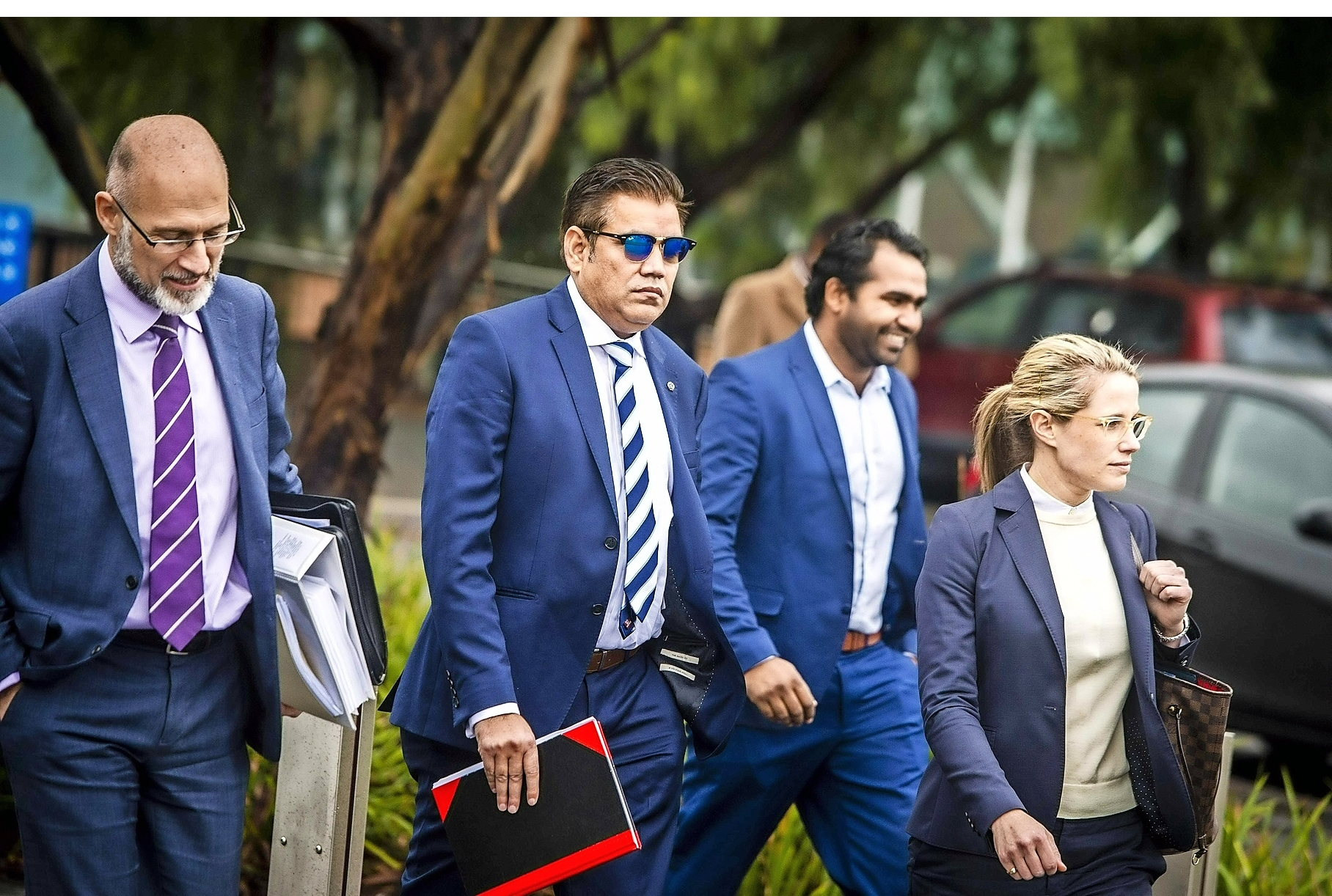As Intaj Khan awaits sentencing, Charlene Macaulay takes a look at the enigmatic Wyndham councillor’s story.
He’s one of the most divisive personalities in Wyndham.
With his $70 million-plus fortune, distinctive red Ferrari with personalised number plates and $10 million proposed Tarneit mansion, Intaj Khan has attracted his fair share of attention from the community.
He’s been under close scrutiny by the Local Government Inspectorate over his two terms as a Wyndham councillor. Last year he was suspended for four weeks following comments he made to the media and online.
Next month, he will be sentenced after pleading guilty to three counts of failing to disclose companies in which he held office during the ordinary return period; three counts of failing to disclose companies in which he held a financial interest; and two counts of failing to submit ordinary returns between February 2016 and February 2017.
He faces fines of up to $75,000, but even if convicted, the offences are not considered serious enough for him to be disqualified as a councillor.
All this has been played out in the public arena – but what many do not know is the rags to riches tale that precedes these recent events.
Born in July, 1973, in Sikri, a small town in India, Intaj was the oldest of seven children and was schooled through the public system.
He came to Australia with a diploma of electrical engineering under his belt and $400 to his name, relying on money from relatives to fund a bachelor of engineering technology.
He worked in a bakery, installed security cameras and was a door-to-door salesman selling mobile phones before using $100,000 of his savings to set up the Western Institute of Technology (WIT), which was named one of the BRW’s top 100 fastest growing companies in 2011 and 2012.
In 2012, he bought a prime piece of Caroline Springs real estate – the failed Mowbray College – and after unsuccessfully trying to establish his own high school on that site, sold off the property last year for $12 million.
Cr Khan said he’s used the profits from WIT and the Mowbray sale to develop an extensive property portfolio. He owns large parcels of land across Rockbank, among other areas.
Now, in his second term as a Wyndham councillor, he says he’s heartbroken by the charges brought before him.
His lawyer, Sarah Keating, argued in court earlier this month that Cr Khan’s failure to disclose all companies in which he held office or held a financial interest was inadvertent rather than deliberate and resulted in no personal benefit to him.
She also stressed that Cr Khan did submit the ordinary returns, one seven days past the deadline, the other 11 days past deadline.
The prosecution argued that Cr Khan had received training in regards to the lodging of ordinary returns, but Cr Khan argues that he had not received comprehensive training on how to complete the form and had never been briefed on the severity of the consequences if he failed to comply.
He believes he did not need to add shelf companies – companies in name only – to the return because they had never traded.
He showed Star Weekly copies of the individual councillor training he received in 2015 – out of the 50 pages, only one is dedicated to ordinary returns – and the presentation notes from the first councillor induction session held in November 2016 – where ordinary returns are not mentioned, despite a comprehensive run-down of conflicts of interest.
However, he also showed Star Weekly several emails from Wyndham council encouraging councillors to submit returns by the due date.
Each email contained a copy of a state government guide to filling out ordinary returns, which clearly state that it is an offence under the Local Government Act to fail to lodge a return on time or to give false or incomplete information.
Cr Khan says he has no recollection of ever reading this guide.
“I was not told if you don’t fill [out the form] you’ll go to court,” he said.
“[I thought] it would be a fine like a Telstra fine. It’s not that I didn’t fill in the form, I put it in late.
“I have gained no financial benefit [through these companies] and there’s no way I can hide them, they are on ASIC record, anyone can access.”
Cr Khan said he struggles to understand why the matter had to go before a court.
“If you cannot disqualify [me] as a councillor, what is the purpose of taking this to court?
“The question is: what is the impact of not filing a return on time to the council, to the public of Wyndham? Nothing.
“This is where I’m heartbroken, and appealing to people to understand. Is seven days late, 11 days late, what impact did it cause to Wyndham City Council? What impact did it cause to the public?
“I have not been charged with a conflict of interest, or any wrongdoing in the planning process. These are the laws designed … if you have a conflict of interest, you declare it, and not to gain financial benefits.
“I have never been given the opportunity to explain by the Inspectorate … I am denied natural justice. It might have saved taxpayers’ money, and the court’s time, because the gravity of this offence is just not filling a form on time. Not putting your shelf companies [on the form].”
The matter will reconvene at Sunshine Magistrates Court on July 12.







